Книга священника Иоанна Бeра, декана Свято-Владимирской духовной академии в Крествуде, штат Нью-Йорк (Доктор философии в области богословия Оксфордского университата), прослеживает пройденный христианским богословием путь от раннего осмысления спасительных событий Священным Писанием Нового Завета до вероучительных споров и соборных решений конца III века. Автор анализирует богословское мышление ранних Отцов Церкви в контексте их полемики с оппонентами, привлекая для этого богатый материал, включающий как первоисточники, так и широкий круг патрологических исследований. Рекомендуется всем изучающим церковную историю и христианское богословие.
Orthodoxy has a problem with theology. The reasons for this problem are mainly historical. The science of theology developed in the medieval universities, and then passed through the waves of cultural history that swept through the West: Renaissance, Reformation, Enlightenment, Romanticism. But by the time the universities began to develop, in the twelfth century, Christendom had divided, and these developments all took place in a world from which Orthodoxy was estranged.
In the twentieth century Orthodoxy encountered the West, and also theology as it had developed in that period of estrangement (earlier encounters, through the discussions connected with the union councils in the Middle Ages, and the establishment of theological academies and later theological faculties in universities in Orthodox countries, only compounded the problem by subjecting Orthodox theology to the "pseudomorphosis" so deplored by Fr Georges Florovsky).
Most Orthodox are critical of the development of theology in the West, in particular the way theology had developed as an academic discipline, remote from the life of prayer (a complaint already heard in the West from the fourteenth century onwards), and yet the fruits of critical scholarship, which have led, among other things, to a rediscovery of the riches of the theology of the Fathers, can hardly be ignored.
This has led to an uneasy coexistence between traditional theology and the critical spirit, one result of which has been Orthodox seeking refuge in historical scholarship focused on the period (from the fourth century onwards) when the dogmatic tradition had established itself (in this way shadowing the phenomenon in the Roman Catholic Church between the condemnation of Modernism in the papal decree Lamentabili in 1907 and the Second Vatican Council). Biblical scholarship has not, on the whole, attracted the best Orthodox minds in the twentieth century, and there has been a tendency in such scholarship (especially perhaps in the case of the New Testament) to look to conservative Protestant and Catholic scholarship, with the consequent danger of confusing conservatism and Orthodoxy.
Behr, John - The Formation of Christian Theology - volume 1 - The Way to Nicaea - Иоанн Бер - Формирование христианского богословия - Том 1 - Путь к Никее
by John Behr. p. cm. — (The formation of Christian theology; v. i)
Includes bibliographical references and index.
ISBN 0-88141-224-4 (alk. paper)
I. Theology, Doctrinal—History—Early church, ca. 30-600. 2. Theology, Doctrinal—History—Middle Ages, 600-1500. I. Tide II. Series
Behr, John - The Formation of Christian Theology - volume 1 - The Way to Nicaea - Иоанн Бер - Формирование христианского богословия - Том 1 - Путь к Никее - Content
PART ONE The Gospel of Jesus Christ
-
1 The Tradition and Canon of the Gospel According to the Scriptures
-
2 The Scriptural Christ
-
PART TWO The Word of God
-
3 Ignatius of Antioch
-
4 Justin Martyr
-
5 Irenaeus of Lyons hi
PART THREE The Son of the Father
-
6 Hippolytus and the Roman Debates
-
7 Origen and Alexandria
-
8 Paul of Samosata and the Council of Antioch
Epilogue
Bibliography
Index
Behr, John - The Formation of Christian Theology - volume 1 - The Way to Nicaea - Иоанн Бер - Формирование христианского богословия - Том 1 - Путь к Никее - От автора
«А вы за кого вы почитаете Меня?» Прежде чем приступить к ответу на этот вопрос Христа, следует рассмотреть исторический фон, на котором он возникает, и определить систему понятий, которая задает рамки возможного ответа на него. В первом случае речь идет об исторических реалиях, что c неизбежностью затрагивает деликатный предмет отношений между исторической и вероучительной истиной; во втором – нам придется погрузиться в рассмотрение вызывающего определенные дебаты отношения между Писанием и преданием и в достаточно сложную проблематику канона.
Все эти вопросы обсуждались на протяжении первых двух столетий христианства, а их успешное разрешение приобрело впоследствии характер нормативного (по крайней мере, для того периода, о котором пойдет речь в данной серии книг).
В отношении проблем, связанных с историчностью, следует прежде всего упомянуть о многократно описанном «скандале исключительности» («the scandal of particularity»), заключающемся в том, что Бог уникальным образом открылся в Своем Сыне, палестинском еврее I века н.э. Многие тома были посвящены описанию социальной, политической, экономической и культурной ситуации Палестины того времени.
Вопрос Христа требует толкования, то есть объяснения значения и смысла этой исторической Личности, Его жизни и миссии. Сказать, что Иисус родился от Марии и был распят при Понтии Пилате, – означает сделать утверждение, которое относится к сфере исторической реальности, то есть к факту, который может быть проверен при помощи исторических методов, а может, и нет.
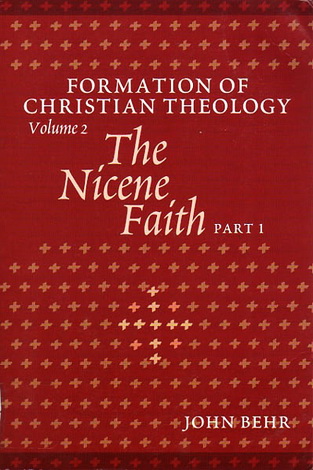
Однако сказать, что Он – воплощенное Слово Божие, распятый и воскресший Господь и Спаситель, – это уже истолкование, объяснение того, Кем Он является и в каком отношении состоит со всеми желающими ответить на Его призыв. Писания Нового Завета как раз были первыми подобными толкованиями, написаннымна основании веры в Того, Кого Бог воскресил из мертвых. Их статус как толкований не может не быть упомянут в связи с имеющими места попытками найти предполагаемое историческое «ядро», к которому затем применяются уже совершенно иные интерпретационные рамки. «Реальный Иисус», встречающийся нам на страницах Нового Завета, – это уже истолкованный Иисус, и потому, чтобы понять Его наиболее глубоко и полно, следует прежде всего обратиться к символическому языку Писания, посредством которого Христос с самого начала понят и истолкован – открыт людям.
Behr, John - The Formation of Christian Theology - Volume 2. The Nicene Faith
st Vladimir's Seminary Press Crestwood, New York 2004
A family has underwritten this volume in honor of their heavenly patron, St Gregory the Theologian.
Library of Congress Cataloging‑in‑Publication Data
Behr, John.
The Way to Nicaea / by John Behr
p. cm. — (The formation of Christian theology; v. 1)
Includes bibliographical references and index.
ISBN 0–88141–224–4 (alk. paper)
1. Theology, Doctrinal‑History‑Early Church, ca. 30–600.
2. Theology, Doctrinal‑History‑Middle Ages, 600–1500.
I. Title II. Series BT23.B47 2001
ISBN 0–88141–260–0 (v. 2 pt. ι : alk. Paper)
ISBN 0–88141–265–1 (v. 2 pt. 2 : alk. Paper)
ISBN 0–88141–266–x (v. 2 pts. ι & 2 set : alk. paper)
copyright © 2004 John Behr
st Vladimir's seminary press
575 Scarsdale Road, Crestwood, NY 10707
1–800–204–2665
ISBN 0–88141–260–0 (part 1)
ISBN 0–88141–265–1 (part 2)
ISBN 0–88141–266–x (parts 1 & 2 set)
All Rights Reserved
printed in the United States of America
Behr, John - The Formation of Christian Theology - Volume 2. The Nicene Faith - Content
Abbreviations
-
Primary Texts
-
Athanasius of Alexandria
-
Basil of Caesarea
-
Gregory of Nyssa
-
Journals, Series, Multi‑Volume Works and Others
6. Basil of Caesarea
-
Radical Opponents: Aetius and Eunomius
-
The Language of Theology
-
Father, Son, and Holy Spirit
-
The Saving Economy
7. Gregory of Nazianzus
-
The Theological Orations
-
The Canons and Creed of the Council of Constantinople
-
A "Nicene" Opponent: Apollinarius of Laodicea
-
Gregory's Letters to Cledonius
8. Gregory of Nyssa
-
Father, Son, and Holy Spirit
-
Contemplating the Eternal Christ
-
Wounded by Divine Desire: Exegesis and the Spiritual Life
Epilogue
Bibliography
-
Primary Texts
-
Secondary Material
Basil of Caesarea entered into the arena of theological controversy at a particularly important moment. He was born (c. 330) into an aristocratic Christian family who could trace their faith back to the third century, to the disciples of Gregory Thaumaturgus, who had brought Christianity to Pontus and had himself, so Basil believed, been a disciple of Origen.[1]
Basil had studied for a number of years in Athens; taught rhetoric for a period in Caesarea; followed Eustathius of Sebaste (without ever catching up with him) on a tour of ascetic settlements in Asia Minor, Syria, Palestine, and Egypt; had been baptized upon his return; and spent some time in retreat on his family estate in Annisa with his friend Gregory of Nazianzus, reading through the works of Origen and compiling the Phibkalia, their collection of extracts from his works. Then, in December 359, Basil was put forward by Eustathius and Basil of Ancyra as their representative in a public debate with Aetius in Constantinople.
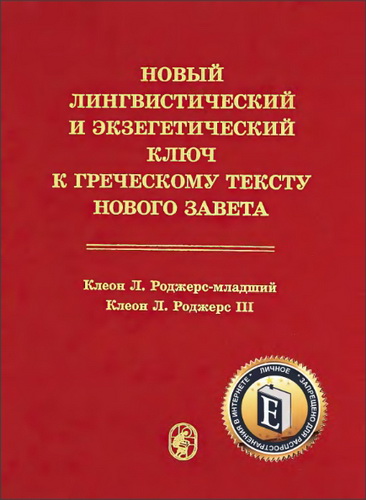
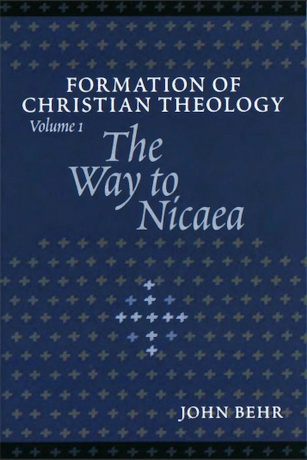

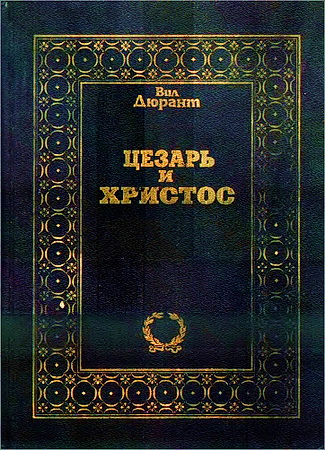
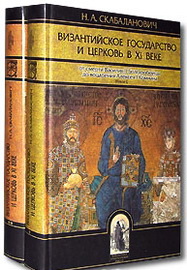
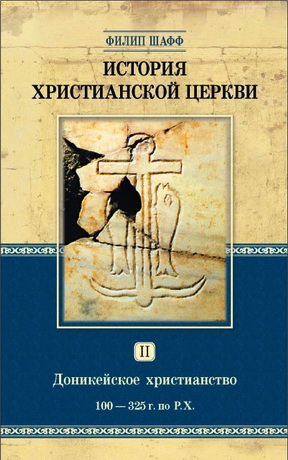
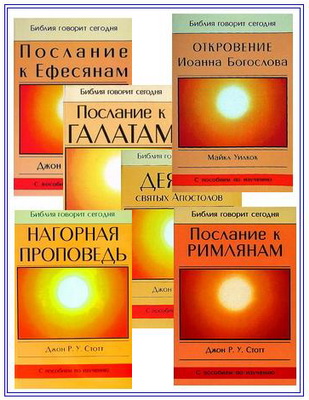
Комментарии (6 комментариев)
Спасибо
Пока не переведена. "Герменевтика" работает сейчас над проектом "Библейские комментарии отцов и учителей Церкви"
никто не знает, 2-я часть была переведена?
Отзыв с обложки (которой нет в этом скане):
This is a masterpiece, comprehensive and lucid and always going into the depth and heart of the argument of the Fathers. It would be hard to find a better guide to the fourth century. It avoids clichés and “textbook” distortions of the theologies of the period, and succeeds in presenting the faith of Nicaea in all its evangelistic and transforming vigour. (Archbishop Rowan Williams)
Если кому надо, можно выложить...